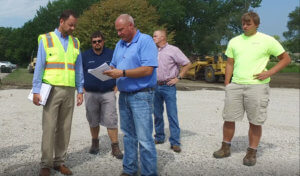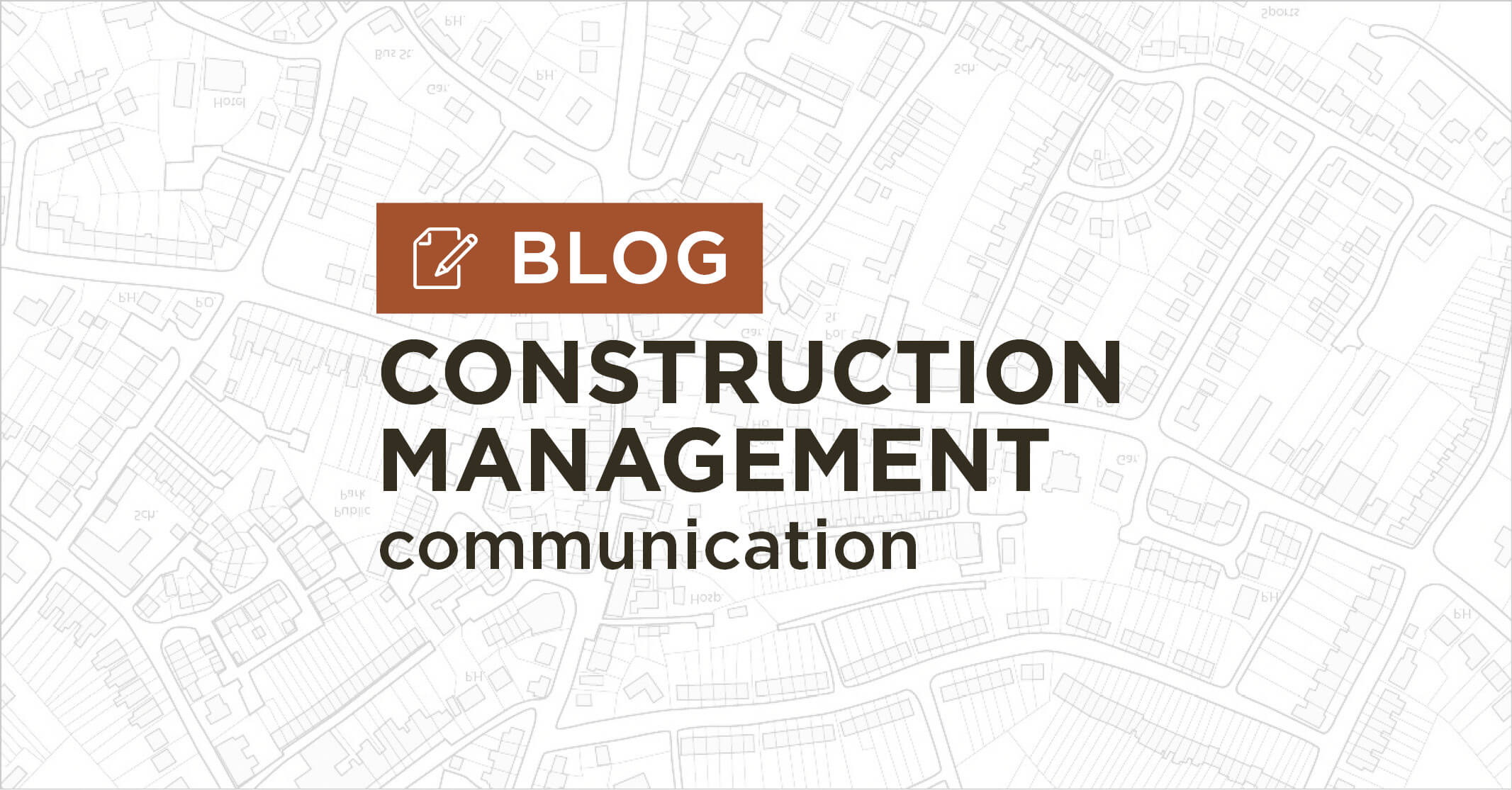Maintaining Proper Levels of Project Communication during Construction
Successfully guiding a project from the initial concept through the final construction communication plan takes meticulous planning, seasoned expertise, and, most importantly, effective communication. At Snyder & Associates, we’ve instilled a relationship-building mindset within our professionals, fostering a reliable and productive communication channel with our clients. The comprehensive understanding of this high communication level allows our team to anticipate potential construction, staging, or project site issues and avoid unnecessary delays or costly change orders.
Consider this common scenario. When construction plans are finalized and a project is let for bids, a communication breakdown often occurs between government entities, consulting firms, and project stakeholders. This happens when proper levels of communication are not maintained daily following construction kick-off. As a result, even well-designed projects with flawless plans may incur issues during construction. In these situations, the original design intent is often lost on those who plod forward with their heads down. However, these issues can be easily avoided or mitigated with proper and regular communication.
Common communication issues include:
- Failure to inform adjacent property owners about overnight pavement saw cutting. While inconvenient, the best time to perform pavement saw cutting is typically overnight, immediately after paving, to avoid random cracking.
- Failure to notify stakeholders about disruptions to water service. Water main projects typically involve replacing water service or connecting an old water service to a new one. To complete these connections, the water service must be shut off for a period (two to four hours on average). Shutting off water service without properly notifying residents and business owners often results in complaints to elected officials.
- Failure to coordinate driveway replacements with property owners. Roadway reconstruction often involves driveway replacement to connect with the new road. This type of work usually takes a couple of days to complete. During that time, driveway access is obstructed, and property owners should be informed in advance to make alternative preparations.
- Failure to communicate construction progress. Project stakeholders may not fully understand various project phases and often become frustrated when they don’t see work taking place. The best way to avoid complaints is to keep the public up-to-date on what progress has been made and what to expect next.
Creating a Construction Project Communication Plan
Early during the project development process, our Project Management Team members develop a comprehensive communication plan to identify specific communication tactics for each project stakeholder. This includes the general public, utility providers, affected property owners, governmental agencies, elected officials, and appropriate staff members. This plan is referenced throughout the project development and design process.
Central to every communication plan we implement are the goals we aim to achieve throughout the project’s construction phase. Specific and targeted goals help us stay on track, gauge plan success, and identify potential areas for improvement. A few of our typical goals include:
- Keep stakeholders informed about the project schedule, progress, and upcoming milestones.
- Establishment of our construction manager/observation staff serving as the main point of contact for project stakeholders regarding any questions, concerns, and complaints that arise during construction.
- Putting time back into our client’s day. Effectively communicating with all project stakeholders relieves our clients of the need to address complaints and information requests.
Defining Key Construction Communication Tactics

Regular onsite meetings help to keep contractors and other stakeholders up-to-date with the latest information.
Recognizing the uniqueness of each project, our team tailors each communication plan to fit the specific needs of our clients and other stakeholders. To accomplish this, we begin with several common aspects, including establishing a communication hierarchy with the contractor during the preconstruction meeting so they know exactly who to contact with questions about the project.
We’ll also distribute letters to property owners along the project corridor at key intervals corresponding to the scope and size of the project and important milestones. Letters include contact information for our staff, the contractor’s most recent schedule, progress to date, upcoming milestones, and any construction staging changes, to name a few. Flyers delivered to property owners regarding upcoming events is another tactic we’ll employ. These flyers cover upcoming interruptions in water service, driveway closures, and saw-cutting operations. Staff contact information is also typically included.
Another strategy we’ll use is to allow project stakeholders to sign up for weekly or bi-weekly email updates that typically occur in conjunction with construction meetings. We’ve also created websites for projects that impact traffic to convey project information such as road closures, detour routes, trail closures, and general project progress.
Direct communication with property owners along the corridor is also critical for project success. Our staff will contact each adjacent property owner once construction begins to facilitate an open line of communication. In addition, we facilitate coordination between contractors and property owners throughout the project for items such as interruptions in water service or driveway access issues.
It’s not unheard of for daily (sometimes hourly) updates to keep the client and other stakeholders informed of the contractor’s progress and address any potential issues that may arise to keep the project on track. Our staff always makes it a priority to be available to address the needs and questions of our clients.
Exceptional Focus Drives Effective Construction Projects
The Snyder & Associates team strives to function as an extension of our client’s staff when corresponding with project stakeholders and contractors. We thoroughly administer and observe construction projects, knowing that tax dollars are at stake. Our seasoned construction staff works hard to anticipate potential issues to avoid delays and change orders. Our field staff completes comprehensive construction testing and other continuous improvement activities each year to stay on top of the latest industry training.
When, on rare occasions, construction starts to fall behind schedule, we quickly facilitate communication with the client, contractor, and other stakeholders to outline a plan that will get the project back on track. Our clients can rest easy knowing that our communication plan helps to hold contractors accountable to the project schedule and within the allotted contract time.
